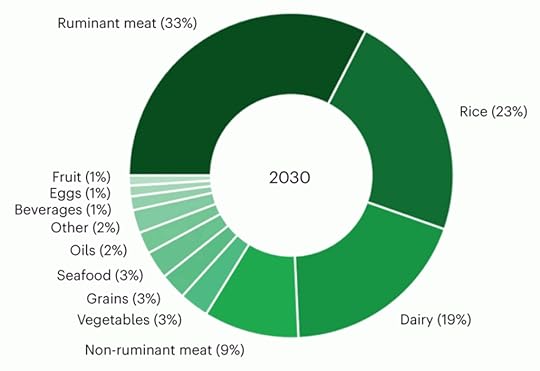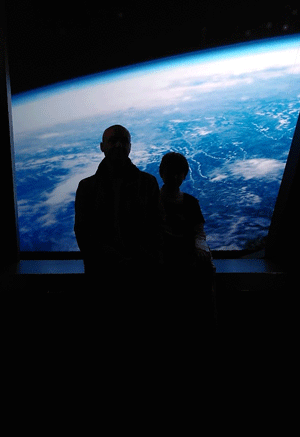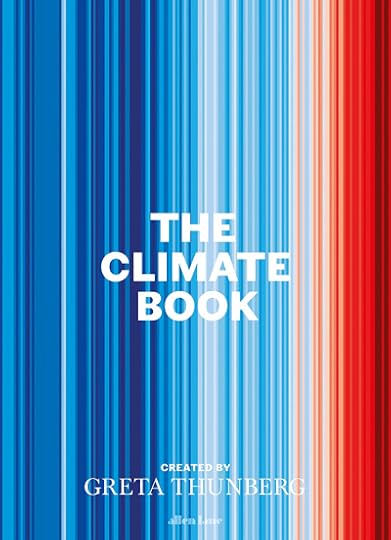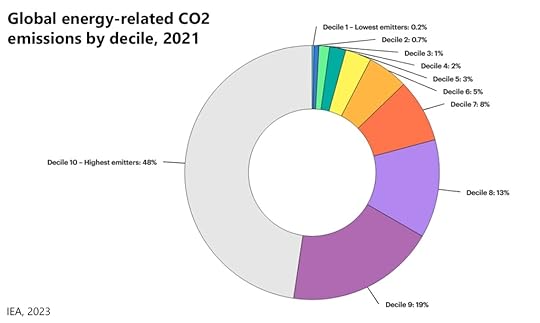Jeremy Williams's Blog, page 46
March 14, 2023
The climate impact of rice
After 15 years of marriage, my wife has finally stopped grumbling that I’ve cooked too much rice for dinner. I have not cooked too much rice – I have cooked enough for breakfast as well. Having grown up in Madagascar, I am at least partly Malagasy, and the part of me that is most Malagasy is my appetite for rice. I had it for breakfast today, with wilted spinach, chilli and a handful of roasted peanuts, and this feels more normal to me than a bowl of cornflakes.

However, rice is a slightl...
March 13, 2023
Book review: Life is not useful, by Ailton Krenak

Learning from indigenous people is a recurring theme in climate justice circles. There are communities whose way of life is not destructive, and who never lost the connection to the land. Those communities manage some of the world’s remaining forests and biodiversity hotspots, often in the face of encroachment and oppression. Of course we should value these perspectives, and listen to how consumer capitalism sounds to those on the outside.
Being open to learn from indigenous ways of life...
March 11, 2023
What we learned this week
Given how many decades it has taken to negotiate, the UN’s new High Seas Treaty didn’t make much of a splash in the news. Perhaps we’re too aware of the gap between promises and action in global agreements at this point. Still, historic – this is a treaty that covers international waters for the first time, and the BBC have an explainer.
I’ve written with scepticism about vertical farming a couple of times (here and here), questioning whether they will ever make economic sense outside of grow...
March 10, 2023
Science fiction at the Science Museum
The Science Museum in London has an area for temporary exhibitions, and their latest is called Science Fiction. We visited as a family recently. It’s a particularly imaginative and playful exhibition that asks a range of questions that are pertinent to the themes of the Earthbound Report.

Visitors are allowed into the exhibition hall in groups, because you enter by boarding a ‘shuttle’. In a bit of participative theatre, the shuttle blasts off and delivers visitors to a spaceship orbiting...
March 9, 2023
Five psychological barriers to climate action
Among the 100+ essays in Greta Thunberg’s The Climate Book, one that I rather liked was Per Espen Stoknes on overcoming climate apathy. He’s a Norwegian psychologist and Green Party politician, and he describes five psychological barriers to climate action. They all start with D, if you’re being generous:
Distance – the effects of climate change can feel far away, both in time and space. That makes climate change somewhat abstract, and it all feels too distant to care about. Of course, this ...March 8, 2023
How much inequality is acceptable?
Inequality matters. Inequality is also inevitable. So how much of it is acceptable? It’s a question I don’t hear very often, but it’s a pretty important one.
I’m not sure I know anyone who advocates absolute equality, and history suggests its a doomed idea. But even if it was possible, is absolute equality something we really want? People have different levels of ability, motivation and ambition. Some work harder or longer. Branko Milanovic, an economist who specialises in inequality, still ...
March 7, 2023
Review: The Climate Book, by Greta Thunberg

The last book with Greta Thunberg’s name on it was a slim volume of speeches that you could read in an hour. She’s a good writer and I’ve been looking forward to something more substantial. Well, this would be it: a 446 page tome with the boldly definitive title The Climate Book.
Thunberg’s message has always been to listen to the science, and this is something she’s put into practice here. “I have decided to use my platform to create a book based on the current best available science – ...
March 5, 2023
What we learned this week
The environmental impacts of war don’t make the news very often, but after a year of Russian aggression in the Ukraine, Greenpeace have produced an interactive map showing environmental losses so far.
Cars are a problematic technology, but solar powered cars are as near as you’ll get to a sustainable private vehicle. Three are in development – and all three are struggling a little. Fully Charged explains why.
Meanwhile we remain dependent on an electric car charging network – which the Gr...
March 2, 2023
The unreported crises of 2022
Every year Care International do some analysis of news reporting and compile a list of the most under-reported humanitarian crises. I’ve covered the list before, and also in my book, as I think it’s important to come back to on an annual basis.
To qualify for the analysis, Care look at emergency situtations that affect at least a million people. In 2022 there were a total of 47 such crises. Some of them are in war zones, such as Ukraine, Syria or Yemen. There were a series of catastrophic fl...
February 28, 2023
The IEA on the emissions of the richest
“The world’s top 1% of emitters over 1,000 times more CO2 than the bottom 1%.”
That’s the kind of killer fact that we’ve come to expect from organisations like Oxfam – a shocking and blunt illustration of climate justice. But this one’s not from Oxfam or any other development or environmental group. It’s from the International Energy Agency.
Their latest piece of analysis looks at the breakdown of CO2 emissions by income, and finds that emissions are grossly tilted towards the top:
 ...
...



